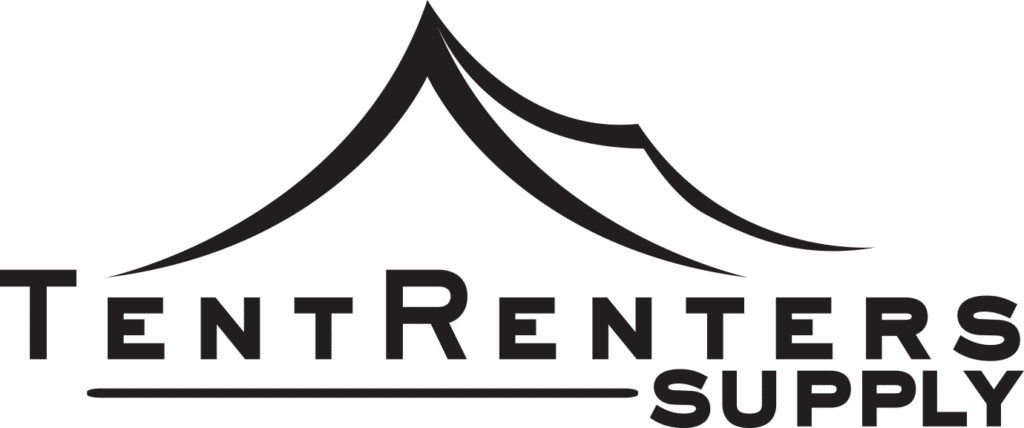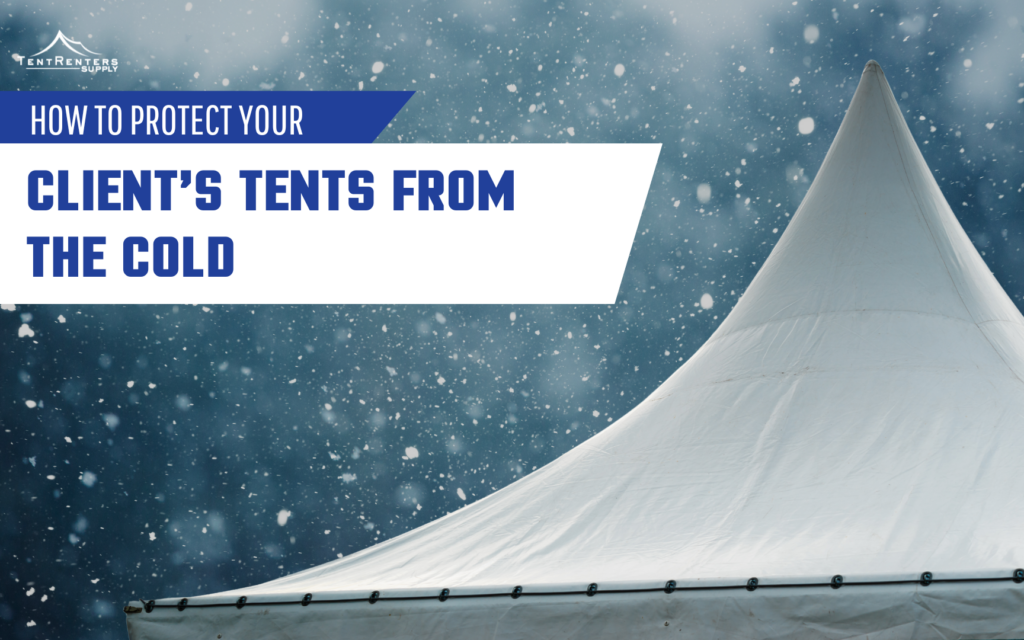Event Tents, Events, Tent Basics, tent material, Tent Safety
How to Protect Your Client’s Event Tents from the Cold: A Complete Winter Guide
Winter events can be magical, but they come with unique challenges—especially when setting up temporary structures like event tents. Cold weather introduces multiple concerns, from temperature control to protecting the tent itself from snow and high winds. Preparing ahead of time with the right materials, heating solutions, and emergency plans can make all the difference.
This comprehensive guide will equip event planners, rental companies, and businesses with the knowledge they need to protect their tents and deliver exceptional winter event experiences.
Understanding the Challenges of Cold Weather Events
Hosting outdoor winter events involves several challenges for both clients and vendors. Here are some common issues faced when using event tents in cold weather conditions:
- Snow Load:
Heavy snowfall can put strain on tent structures if they’re not designed for the weight. Failing to address this can lead to damage or even collapse. - Freezing Temperatures:
Sub-zero temperatures can make it difficult for tents to maintain warmth and create condensation inside, which can impact the comfort of attendees and event functionality. - Wind Resistance:
Strong winter winds can pose safety risks to both tents and event guests if the structure isn’t properly anchored or designed to resist gusts.
For event planners, safety and comfort must remain top priorities while managing client expectations. By anticipating these challenges, proper planning can ensure a hassle-free event.
Choosing the Right Tent Material
Selecting the appropriate tent material is critical for successful winter events. Cold weather demands durable, weather-resistant tent materials with features designed to withstand harsh conditions.
- Vinyl or PVC-Coated Fabrics
These materials excel at repelling snow, moisture, and wind. Their tough exteriors resist tears and can handle significant weight from snow or ice. - Insulated Liners
Thermal properties in materials like canvas with inner liners offer better insulation by keeping warmth in and cold air out. - Reinforced Frames
Look for tent frames made from high-grade aluminum or steel to provide added strength against snow loads and wind pressure.
When sourcing tents, ensure the manufacturer offers options optimized for winter. For example, we at Tent Renters Supply provide high-quality winter event tents tailored for cold weather.
Heating and Insulation Techniques
Keeping the interior of a tent warm and inviting is crucial. Effective heating and insulation solutions ensure guest comfort without compromising safety.
- Portable Heaters
Compact propane or electric portable heaters are often the most practical choice. They efficiently warm smaller spaces while being easy to set up. - HVAC Systems
For larger events, invested HVAC systems are a reliable option, as they can handle higher capacity and distribute heat evenly. - Radiant Heating
This system, often placed under flooring, provides consistent warmth without occupying additional space inside the tent.
Essential Safety Tips for Heating Equipment
- Keep heaters away from tent walls and flammable decorations.
- Use tents with adequate ventilation to prevent a buildup of carbon monoxide from fuel-powered heaters.
- Follow the manufacturer’s guidelines for all heating equipment.
To enhance insulation, consider adding flooring, thick liners, or even wall drapes. These strategies not only improve thermal retention but also add to the overall aesthetic of the event.
Providing Comfort for Attendees
Comfort is key, especially when hosting guests outdoors during chilly weather. Creating a warm and inviting event space is essential for client satisfaction.
- Add Floor Coverings
Insulated or carpeted flooring prevents cold transfer from the ground to guests and keeps the interior cozier. - Utilize Strategic Lighting
Warm-hued lighting or string lights can visually warm the space and create a cozy atmosphere. - Seat Warmers and Blankets
Portable seat warmers or offering throw blankets as favors can be delightful touches to enhance comfort.
Position heaters strategically around the tent for even heat distribution. Don’t overlook entrances and exits—they can be key areas of heat loss. Consider using double-layer door solutions or air locks to keep warmth inside.
Emergency Preparedness
Winter weather is unpredictable, so it’s vital to have contingency plans in place to handle unexpected situations.
- Snow Removal:
Keep snow removal tools on-site, such as snow brooms or shovels, to handle buildup quickly and efficiently. - Backup Power:
Portable generators ensure heating and lighting remain functional in case of power outages. - Weather Monitoring:
Use real-time weather tracking apps to anticipate sudden changes that might affect the event.
Prepare clients with clear instructions on what to do in emergencies, ensuring all staff is briefed and ready to respond as needed.
Additional Tips for Cold Weather Events
- Secure Tent Anchors
Use heavy-duty stakes or water barrels to anchor tents, preventing movement in strong winds. - Install Snow Gutters
Snow gutters on the tent roof redirect snow away from the structure, preventing buildup and leaks. - Add Wind Barriers
Surround tents with windbreaks such as pre-built walls, hay bales, or temporary fencing for added weatherproofing.
After the event, inspect the tent thoroughly for damage caused by the cold, such as rips, stains, or bent framing. Proper maintenance ensures the tent is ready for the next event.
Tent Renters Supply: Your Partner for Winter Event Tents
When it comes to hosting events in challenging weather conditions, it’s essential to rely on durable and expertly designed products. We take pride in offering high-quality winter event tents built to withstand snow, wind, and freezing temperatures.
With a commitment to durability and customer service, we’re here to support your events with tailored solutions. Contact our team of tent experts to discuss your next event. Together, we’ll keep your guests warm and your events running smoothly.

